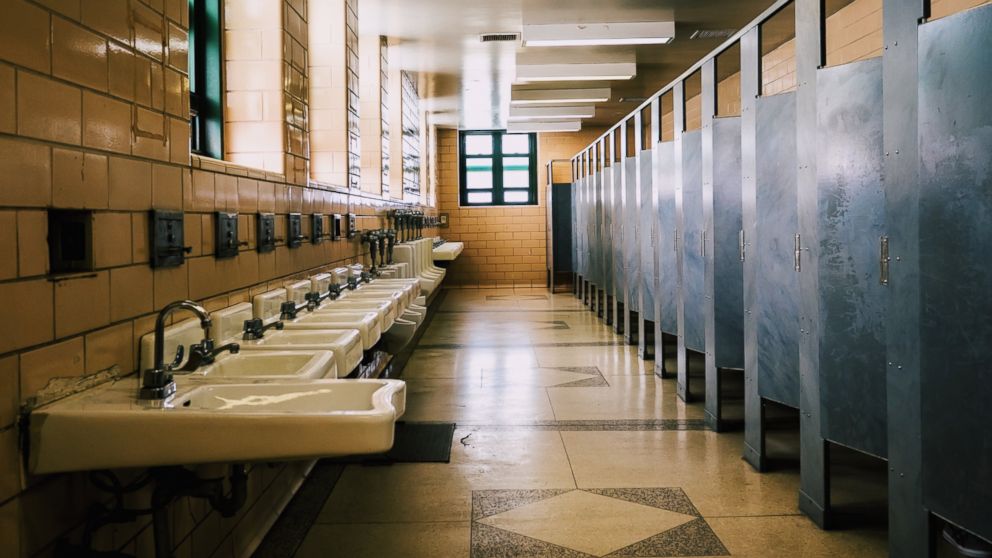Sexual Assault and Domestic Violence Organizations Debunk 'Bathroom Predator Myth'
The myth does more harm than good, transgender advocates say.

— -- A coalition of over 200 national, state and local organizations across the U.S. that work with sexual assault and domestic violence survivors are objecting to the justifications given by lawmakers to forbid transgender people from using the bathroom of their choosing.
These organizations asked for “support of full and equal access for the transgender community," according to a statement on Thursday by a coalition under the advocacy group National Task Force to End Sexual and Domestic Violence Against Women.
This outcry from hundreds of organizations comes after North Carolina passed House Bill 2, a law that bans people from using bathrooms that don't match the sex indicated on their birth certificate.
There is currently no explanation of how the law should be enforced, and "lawmakers proposing these measures could implement enforcement that is a grave and unconstitutional intrusion into people’s privacy," Chase Strangio, staff attorney at the ACLU Lesbian Gay Bisexual Transgender Project and a transgender man, told ABC News today. The ACLU Project is not one of the organizations listed on Thursday’s coalition statement.
Lawmakers in North Carolina who support HB2 say it prevents putting women and children in vulnerable situations in public bathrooms and changing areas if men exploit the law and pose as transgender women so they could sexually assault or engage in inappropriate behavior in these areas. Critics call that reasoning the "bathroom predator myth.”
“Over 200 municipalities and 18 states have nondiscrimination laws protecting transgender people’s access to facilities consistent with the gender they live every day,” according to the coalition. "None of those jurisdictions have [sic] seen a rise in sexual violence or other public safety issues due to nondiscrimination laws. Assaulting another person in a restroom or changing room remains against the law in every single state.”
Strangio also noted that allowing transgender people to use the bathroom corresponding to their gender identity “doesn’t increase in any way public safety incidents.”
There are two central falsehoods to the legislators’ reasoning, Strangio said. One is "that transgender people aren’t real and [are] inherently dangerous.” The second falsehood is that without HB2, "non-transgender people will take advantage" of the situation -- for example, a man could dress up as a woman to enter a woman's bathroom.
“All this does is to heighten gender policing of everyone by law enforcement, and individual people who do not conform to gender norms are targeted," Strangio said.
John Rustin, president of the North Carolina Family Policy Council, a group that supports HB2, denies that the bill seeks to discriminate against the trans community.
“The bill is important because it protects the privacy and dignity of woman and children,” Rustin told ABC News today. He added that by allowing transgender people to go into the bathroom or locker room that corresponds with their gender it would “allow men and potentially predators to enter into those facilities with ill intentions. It’s a common sense privacy and safety law. Men go into men’s restrooms and women go into women’s restrooms.”
Laura Palumbo, communications director at the National Sexual Violence Resource Center, told ABC News that people who are looking to sexually assault someone will go into a bathroom regardless if it corresponds to their gender. “It’s problematic to conflate in examples when a person, who is not transgender identified, is trespassing in a restroom exploiting that position to harm others,” she said.
The lawmakers’ justification does not take into account that men can also be victims of sexual assault and harassment in public bathrooms and changing rooms. Transgender men who have had to use female restrooms due to such laws “experience a ton of violence in women’s restroom and are told they don’t belong there,” Strangio said. “It usually leads to people not using the bathroom.”
Palumbo said she believes people “must understand the facts about sexual assault,” adding that in 8 out of 10 cases the victim already knows the person who sexually assaulted them, citing Justice Department statistics. However, 64 percent of transgender people will experience sexual assault in their lifetime, she said, citing a study by the National Gay and Lesbian Task Force and National Center for Transgender Equality.
“All the data and all the evidence shows protecting transgender people only increase public safety,” Strangio said. He said laws like House Bill 2 imply “that fundamentally people just don’t think of transgender people as humans, and they try to erase trans people from existence.”
But he added that the “reality is that most everyone has shared a bathroom with a trans person and nothing has happened. It is a mundane experience of how it is whenever going to the bathroom.”




